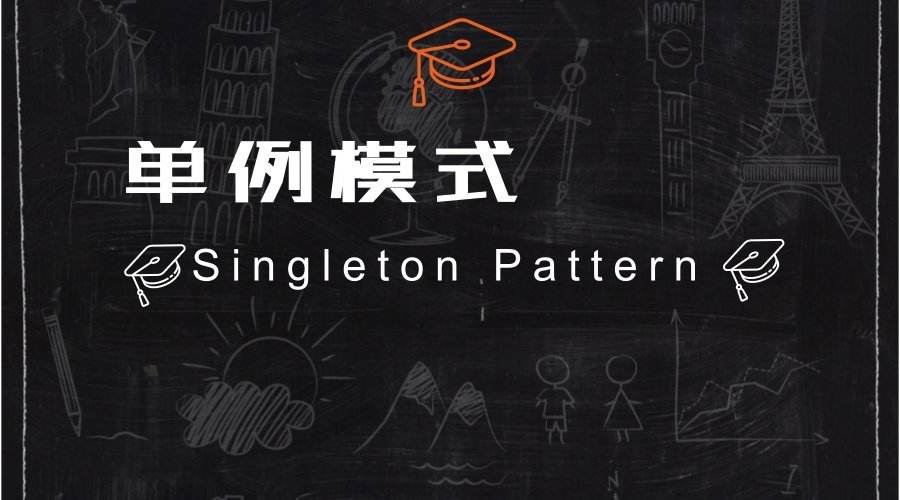
单例模式要求一个类有一个实例,有公开接口可以访问这个实例。单例模式分为以下两种模式:
-
严格单例模式
严格单例模式,要求一个类只有一个实例。
-
不严格单例模式
不严格单例模式,可以创建多个实例。
有的类只能有一个实例,例如 UIApplication 类,通过 shared 属性访问唯一的实例,属于严格单例模式。废话不多说,接下来看看 Swift 和 Objective-C 的每种单例模式的具体实现。
Swift 实现
严格单例模式
大多数 Objective-C 的类都继承自 NSObject,而 Swift 的类可以继承自 NSObject 类或者不继承。
- 继承自 NSObject 类
- 写法一
open class DYFStore: NSObject {
public static let `default` = DYFStore()
/// Overrides default constructor.
private override init() {
super.init()
}
/// Make sure the class has only one instance.
open override func copy() -> Any {
return self
}
/// Make sure the class has only one instance.
open override func mutableCopy() -> Any {
return self
}
}
- 写法二
open class DYFStore: NSObject {
/// A struct named "Inner".
private struct Inner {
static var instance: DYFStore? = nil
}
public class var `default`: DYFStore {
objc_sync_enter(self)
defer { objc_sync_exit(self) }
guard let instance = Inner.instance else {
let store = DYFStore()
Inner.instance = store
return store
}
return instance
}
/// Overrides default constructor.
private override init() {
super.init()
}
/// Make sure the class has only one instance.
open override func copy() -> Any {
return self
}
/// Make sure the class has only one instance.
open override func mutableCopy() -> Any {
return self
}
}
- 写法三
open class DYFStore: NSObject {
/// A struct named "Inner".
private struct Inner {
static var instance: DYFStore? = nil
}
public class var `default`: DYFStore {
DispatchQueue.once(token: "com.storekit.DYFStore") {
if Inner.instance == nil {
Inner.instance = DYFStore()
}
}
return Inner.instance!
}
/// Constructs a store singleton with class method.
///
/// - Returns: A store singleton.
public class func defaultStore() -> DYFStore {
return DYFStore.self.default
}
/// Overrides default constructor.
private override init() {
super.init()
}
/// Make sure the class has only one instance.
open override func copy() -> Any {
return self
}
/// Make sure the class has only one instance.
open override func mutableCopy() -> Any {
return self
}
}
// MARK: - Extends the properties and method for the dispatch queue.
extension DispatchQueue {
/// Declares an array of string to record the token.
private static var _onceTracker = [String]()
/// Executes a block of code associated with a given token, only once. The code is thread safe and will only execute the code once even in the presence of multi-thread calls.
///
/// - Parameters:
/// - token: A unique idetifier.
/// - block: A block to execute once.
public class func once(token: String, block: () -> Void) {
objc_sync_enter(self)
defer { objc_sync_exit(self) }
if _onceTracker.contains(token) {
return
}
_onceTracker.append(token)
block()
}
/// Submits a task to a dispatch queue for asynchronous execution.
///
/// - Parameter block: The block to be invoked on the queue.
public func asyncTask(block: @escaping () -> Void) {
self.async(execute: block)
}
/// Submits a task to a dispatch queue for asynchronous execution after a specified time.
///
/// - Parameters:
/// - time: The block should be executed after a few time delay.
/// - block: The block to be invoked on the queue.
public func asyncAfter(delay time: Double, block: @escaping () -> Void) {
self.asyncAfter(deadline: .now() + time, execute: block)
}
}
DYFStore (In-app Purchase in Swift for iOS) 属性 default 持有唯一的实例,对外公开。
重载 init() 方法,使其对外不可见,不可以在外部调用,防止在外部创建实例。
重载 copy()、mutableCopy() 方法,返回 self,防止在外部复制实例。这里也可以返回 DYFStore.default,效果是一样的,因为只有一个实例。只有属性 default 能调用 copy()、mutableCopy() 方法,那么 self 就是属性 default。写 self,代码比较简洁。
- 不继承自 NSObject 类
open class DYFStore {
public static let `default` = DYFStore()
/// Privatizes default constructor.
private init() {}
}
不继承自 NSObject 的类没有 copy()、mutableCopy() 方法,不需要重载。其他同上。
不严格单例模式
把重载的 init() 方法去掉,或者把 private 去掉,即可创建多个实例。如果继承自 NSObject,重载 copy()、mutableCopy() 方法:创建新实例,传递数据给新实例,返回新实例。其他与严格单例模式相同。
open class DYFStore {
public static let `default` = DYFStore()
init() {}
}
Objective-C 实现
Objective-C 创建对象的步骤分为以下两步:
- 1、申请内存(alloc)
- 2、初始化(init)
我们要确保对象的唯一性,因此在第一步阶段时我们就要拦截它。
当调用 alloc 方法时,OC 内部会调用 allocWithZone 方法来申请内存,我们覆写这个方法,然后在这个方法中赋值 _instance 并返回单例对象,这样就可以达到我们的目的。
拷贝对象也是同样的原理,覆写copyWithZone方法,然后在这个方法中调用 _instance 返回单例对象,或者禁用 copy 和 mutableCopy 方法 。
严格单例模式
.h 文件
@interface DYFStore : NSObject
/** Constructs a store singleton with class method.
@return A store singleton.
*/
+ (instancetype)defaultStore;
/** Disable this method to make sure the class has only one instance.
*/
+ (instancetype)new NS_UNAVAILABLE;
/** Disable this method to make sure the class has only one instance.
*/
- (id)copy NS_UNAVAILABLE;
/** Disable this method to make sure the class has only one instance.
*/
- (id)mutableCopy NS_UNAVAILABLE;
@end
.m 文件
@implementation DYFStore
// Provides a global static variable.
static DYFStore *_instance = nil;
+ (instancetype)defaultStore {
return [[self.class alloc] init];
}
/** Returns a new instance of the receiving class.
*/
+ (instancetype)allocWithZone:(struct _NSZone *)zone {
if (_instance == nil) {
static dispatch_once_t onceToken;
dispatch_once(&onceToken, ^{
_instance = [super allocWithZone:zone];
});
}
return _instance;
}
- (instancetype)init {
static dispatch_once_t onceToken;
dispatch_once(&onceToken, ^{
_instance = [super init];
[_instance setup];
});
return _instance;
}
/** Sets initial value for some member variables.
*/
- (void)setup {
}
@end
在 .h 文件中,用 NS_UNAVAILABLE 禁用初始化和拷贝方法,只允许用 defaultStore 方法访问唯一实例。
静态变量 _instance 持有唯一的实例,通过 defaultStore 方法对外公开。由 dispatch_once 保证 _instance 只初始化一次。方法返回值的 nonnull 表示返回值不为空,这样写方便 Swift 调用。不加 nonnull,defaultStore 方法在 Swift 中的返回值是 optional 类型 (DYFStore?),不方便使用;若加上 nonnull,则为 DYFStore (In-app Purchase in Objective-C for iOS) 类型。
NSObject 的类方法 new 相当于 alloc 和 init 方法。
不严格单例模式
.h 文件
@interface DYFStore : NSObject
/** Constructs a store singleton with class method.
@return A store singleton.
*/
+ (instancetype)defaultStore;
@end
.m 文件
@implementation DYFStore
+ (instancetype)defaultStore {
static DYFStore *_instance = nil;
static dispatch_once_t onceToken;
dispatch_once(&onceToken, ^{
_instance = [[self alloc] init];
});
return _instance;
}
@end
公开的 defaultStore 方法与严格单例模式相同。外部可以通过 init 方法创建与 _instance 不同的实例。
如果重载 copyWithZone: 和 mutableCopyWithZone: 方法,就在里面创建新实例,传递数据给新实例,返回新实例。外部可以通过 copy 或 mutableCopy 方法复制实例。
- (id)copyWithZone:(NSZone *)zone {
DYFStore *store = [[self.class allocWithZone:zone] init];
// Copy data to store
return store;
}
- (id)mutableCopyWithZone:(NSZone *)zone {
DYFStore *store = [[self.class allocWithZone:zone] init];
// Copy data to store
return store;
}
最后,想了解更多详情,请查看我的 Demo,记得给个 Star,😝😝
Demo ( Objective-C ):戳这里
Demo ( Swift ):戳这里